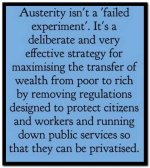- Joined
- Apr 21, 2022
- Messages
- 104
- Reaction score
- 7
- Gender
- Male
- Political Leaning
- Moderate
KEY POINTS FROM THIS ARTICLE
— One of the defining features of American politics is the realignment of white, college-educated voters toward Democrats and that of white voters without a degree toward Republicans.— There are competing views on how or whether Democrats can perform better among white non-college voters.
— Appealing to the economic interests of white non-college voters may not be enough for Democrats to win back their support.
What is driving the realignment among white voters
The past 30 years have witnessed a dramatic inversion of the class foundations of the American party system. White voters without college degrees, once the cornerstone of the Democratic electoral coalition, have swung sharply toward the Republican Party. Meanwhile, college-educated white voters, once a solidly Republican voting bloc, have been shifting toward the Democrats. The result is a party system in which, among white voters at least, education has become one of the main dividing lines.Growing support among white working class (non-college) voters for the Republican Party has sparked a debate among political analysts and Democratic strategists about the underlying causes of Democratic decline within this shrinking but still very important voting bloc and what, if anything, party leaders can do to regain some of the lost ground.
There appear to be two major explanations for the political realignment of the white working class, and they have different implications for Democrats’ chances of a political comeback with this group. One school of thought, perhaps best represented by progressive scholar Ruy Teixeira, blames Democratic decline largely on the party’s prioritization of cultural and racial justice issues over traditional bread-and-butter economic issues. According to this theory, Democrats have failed to address economic problems such as the decline of manufacturing jobs and unfair trade competition that have led to growing economic insecurity among white working class voters. At the same time, many of these voters have been turned off by the Democrats’ increasingly liberal positions on issues such as gay rights, affirmative action, and immigration.
A second school of thought, represented by scholars such as Michael Tesler of the University of California, Irvine and John Sides of Vanderbilt University, argues that economic discontent has little to do with the flight of white working class voters from the Democrats. In their view, the main factor behind the shifting party allegiance of these voters is the success of Republican leaders like Donald Trump in appealing to the racial resentments and grievances of non-college white voters.
These two schools of thought have different implications for the ability of Democratic candidates to win back support from white working class voters. If economic discontent is the main driver of the shift to the GOP, Democrats could potentially win a larger share of the white working class vote by emphasizing concrete actions and policies to address these concerns while perhaps playing down liberal positions on cultural and racial issues. On the other hand, if racial resentment and grievances are the main drivers of white working class flight from the Democrats, paying more attention to the economic concerns of these voters might not be very effective. Moreover, downplaying or abandoning liberal positions on cultural and racial issues would potentially risk alienating voting blocs that make up key components of the party’s current electoral coalition including Blacks, Latinos, and college-educated whites.
Can Democrats Win Back the White Working Class? – Sabato's Crystal Ball
centerforpolitics.org

:watermark(cdn.texastribune.org/media/watermarks/2020.png,-0,30,0)/static.texastribune.org/media/files/4a32657f7daef3cf7714adbb0eb917ef/Austin%20Protest%20June%204%20EG%20TT%2001.jpg)




